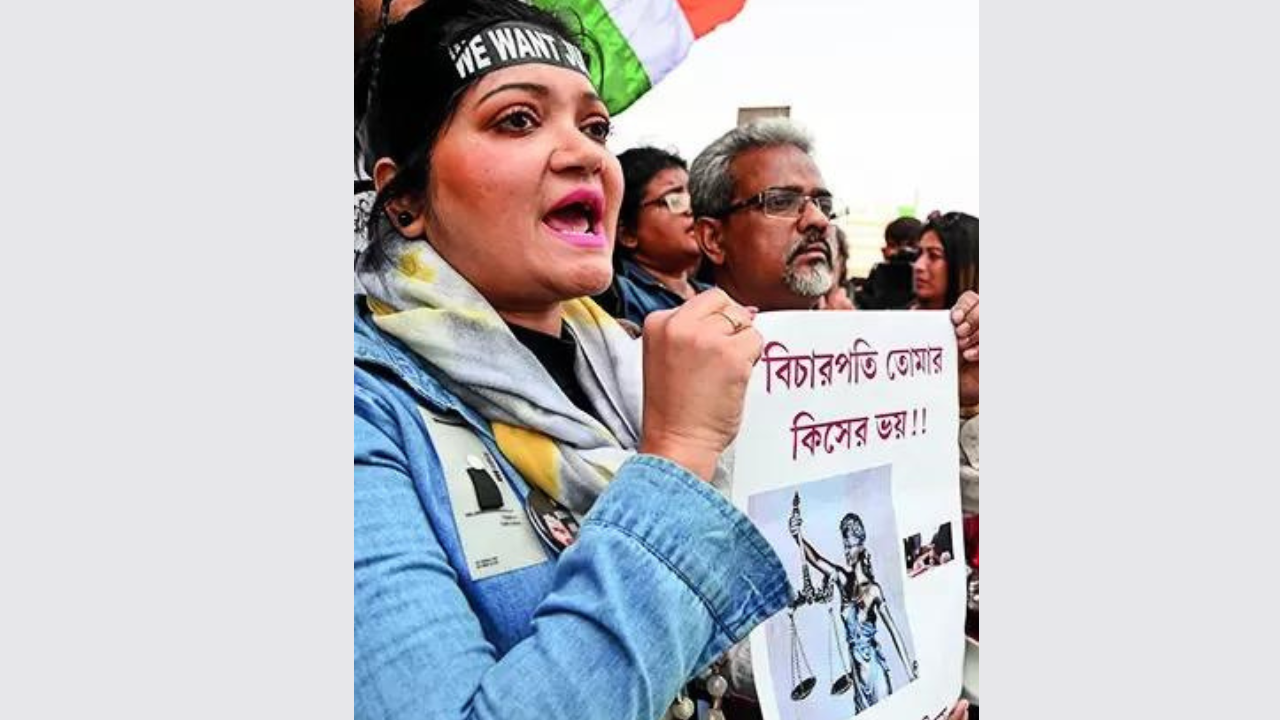
Kolkata Court's Life Sentence Sparks Debate: Reform Over Retribution?
Kolkata Court's Life Imprisonment Verdict Sparks Debate: Reform Over Retribution?
In a case that has captivated the nation, the Kolkata court's decision to sentence Sanjay Roy to life imprisonment for rape and murder, rather than the death penalty, has ignited a fiery debate about the justice system's priorities. Judge Anirban Das's emphasis on "reform" over "retribution" has sparked praise from experts and advocacy groups, while others question whether it sends the right message. Was this a victory for justice, or a dangerous precedent?
The Judge's Rationale: Reform, Not Revenge
Judge Das's ruling rests on a powerful philosophy: "The measure of a civilised society lies not in its ability to exact revenge, but in its capacity to reform, rehabilitate, and ultimately to heal." This sentiment challenges the age-old retributive approach to justice and calls for a new paradigm where rehabilitation and societal healing take center stage. The judge stated that this specific case didn’t meet the ‘rarest of the rare’ criteria necessary for the death penalty, as established by the Bachan Singh case.
Examining the Evidence: A Close Call
The decision was reached following a comprehensive review of evidence presented throughout the trial. While acknowledging the severity of the crime, the court deemed the case did not reach the threshold for the ultimate punishment, leaving many wondering exactly what evidence was considered in the judgment. Many are now calling for the full case records to be released in order to provide a deeper analysis of this complex case.
A Divided Public Opinion
The life sentence handed to Sanjay Roy is anything but unanimous. There is a clear split amongst members of the public who question the judicial system's ability to properly reflect the heinous nature of the crime. Some argue that a life sentence will not bring enough solace to the victim's family and community.
Expert Opinions and Advocacy Group Responses: A chorus of divided voices
Legal experts and human rights advocates are divided, further fueling the public discourse. Some echo the judge’s emphasis on reformative justice, noting the possibility of rehabilitation even for heinous crimes. They argue that life imprisonment, with potential for rehabilitation, offers a better approach. Advocates like Ranjit Sur, from the Association for Protection of Democratic Rights (APDR), pointed to the lack of compelling evidence against capital punishment’s ability to deter violent crime, claiming such punishments should only be used as an absolute last resort.
Diverging Perspectives: The death penalty is under examination.
Other legal professionals disagree, asserting that the death penalty remains a necessary tool in addressing horrific crimes. These experts suggest that in certain extreme cases, retribution serves a legitimate societal purpose by providing a sense of closure to victims’ families. Senior advocate Bikash Ranjan Bhattacharya expressed that there should be no death penalty. Judge Das's statement highlights the legal complexity in cases that call for a balance of public opinion and evidence.
What is considered ‘rarest of the rare’?
The use of the phrase 'rarest of the rare' has ignited controversy and raised public awareness to the complexities of sentencing criminals for heinous crimes. What constitutes such cases is a subject of continuous review amongst experts.
Exploring Alternative Justice Models: Reformative justice gains momentum?
The verdict has prompted a deeper examination of justice systems and the value of restorative and rehabilitative justice. This approach emphasizes repairing harm caused by crime while also addressing its underlying root causes. There’s increased discussion whether reformative justice should be preferred in many instances over a more retributive model. Several support restorative and rehabilitative programs for convicts as well as the public.
Striking a Balance: Justice and Humanity
Reformative justice approaches present a difficult but important challenge. While societal outcry against certain crimes demands justice, a progressive approach is a balance between holding individuals responsible for their actions and making an attempt at positive changes to prevent similar situations from happening.
A Growing movement:
An increase in debate and awareness can be attributed to reformative and restorative justice, promoting a more humane and collaborative approach within justice systems. Reformative practices emphasize providing resources for prisoners to support their rehabilitation, fostering community involvement in resolving conflicts arising from criminal actions, and ultimately improving safety in the community.
Take Away Points
The Kolkata court's decision to prioritize reform over retribution in the sentencing of Sanjay Roy has launched a significant discussion on the complexities of justice. The ongoing debate calls for a careful consideration of different approaches to sentencing, highlighting the ongoing need to reconcile punishment and the pursuit of justice while simultaneously promoting opportunities for healing.
This discussion highlights the complex relationship between retributive and reformative justice, underscoring the need for a thoughtful and balanced approach to achieving justice in a society where the emphasis on healing over retribution could shape legal systems for future generations.








